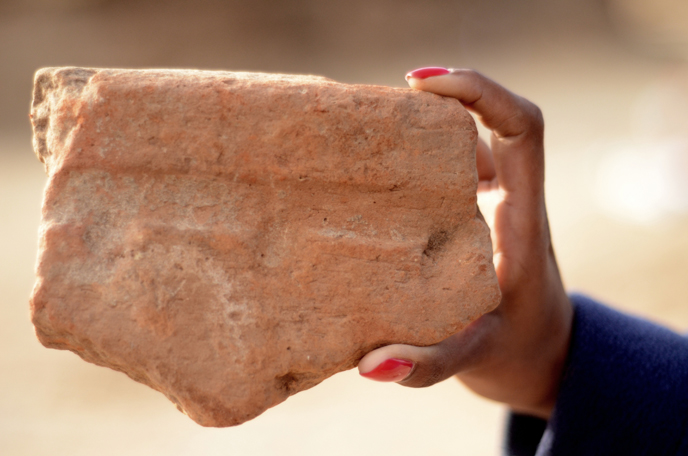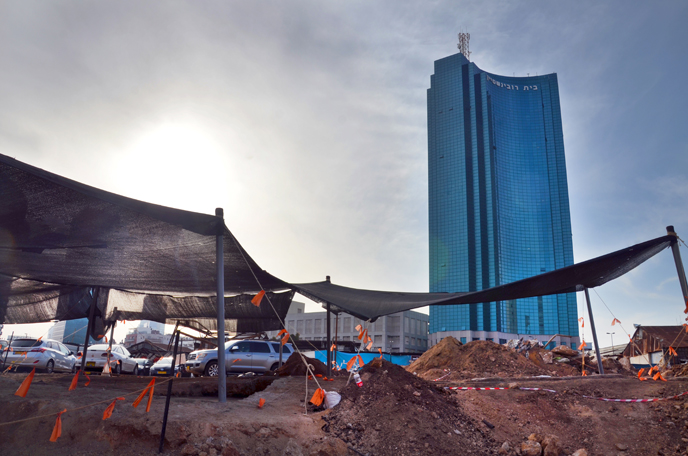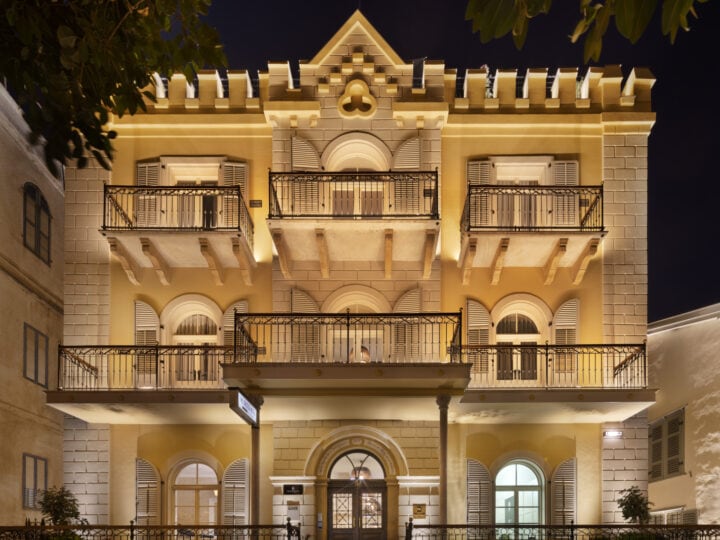
The city of Tel Aviv prides itself on being a city-that-never-sleeps and new archaeology findings support that claim – even dating back 5,000 years.
The Israel Antiquities Authority, which is conducting salvage excavations prior to the construction of office buildings in its city center, announced the unearthing of pottery vessels likely used to prepare beer in the Early Bronze Age.
“Among the hundreds of pottery shards that characterize the local culture, a number of fragments of large ceramic basins were discovered that were made in an Egyptian tradition and were used to prepare beer. These vessels were manufactured with straw temper or some other organic material in order to strengthen them, a method not customary in the local pottery industry,” said Diego Barkan, director of the archaeological excavation on behalf of the Israel Antiquities Authority.
The archaeologists pointed out that beer was the “national drink of Egypt” in ancient times, and that it was a basic commodity like bread.

“Beer was consumed by the entire population, regardless of age, gender or status. It was made from a mixture of barley and water that was partially baked and then left to ferment in the sun,” a statement reads.
Until now, Barkan said, Egyptian settlement in the Early Bronze Age (3500 – 3000 BC) was thought to be confined to the southern Negev region and around the Mediterranean coastline.
“Now we know that they also appreciated what the Tel Aviv region had to offer and that they too knew how to enjoy a glass of beer, just as Tel Avivians do today,” he said.
The beer find comes one month after Israeli archaeologists discovered grape seeds from the Byzantine era in the Negev.
Barkan said that a bronze dagger and flint tools dating 6,000 years ago to the Chalcolithic period were also found at the site.

















